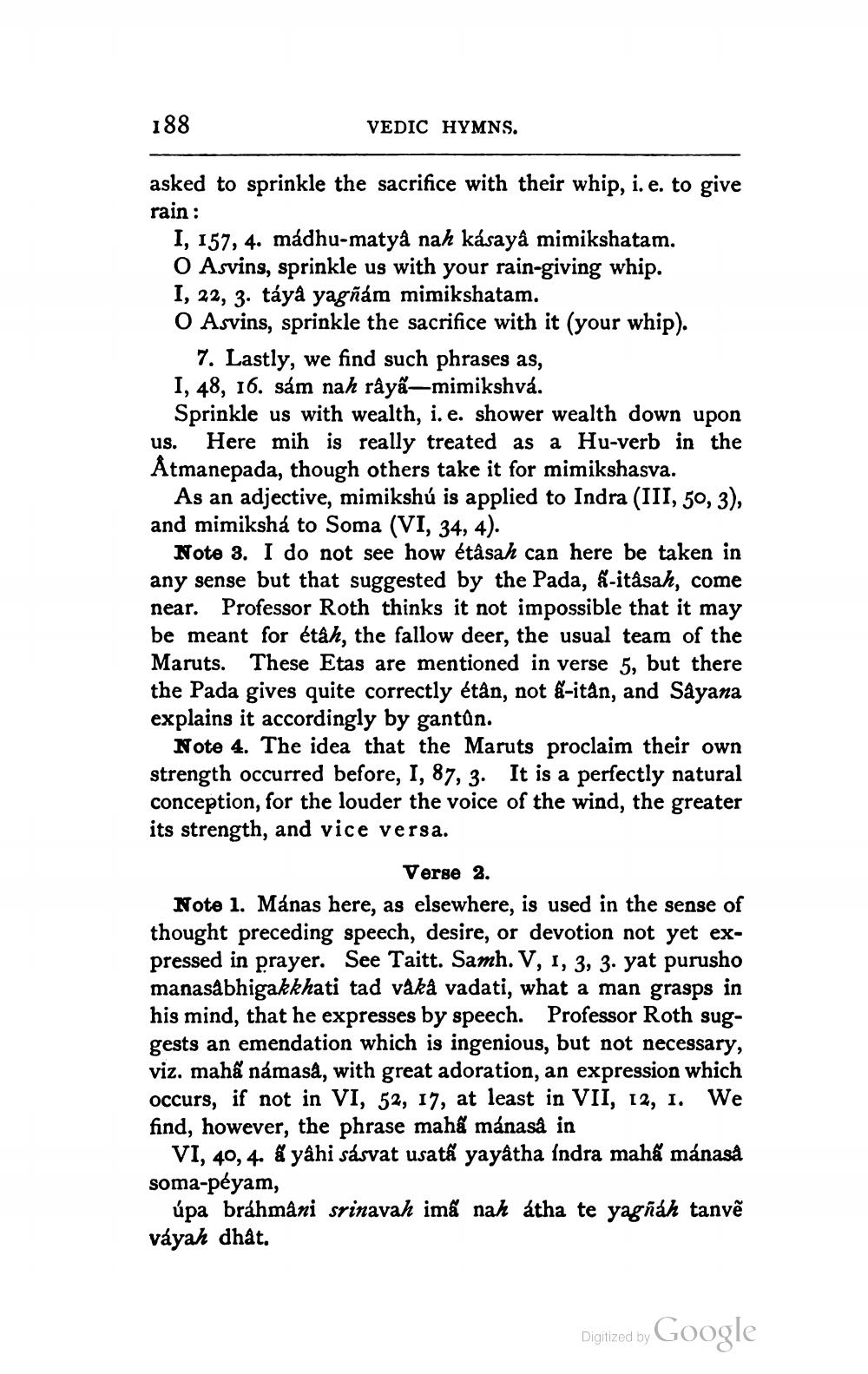________________
188
VEDIC HYMNS.
asked to sprinkle the sacrifice with their whip, i. e. to give rain :
I, 157, 4. madhu-matyà nah kásaya mimikshatam. O Asvins, sprinkle us with your rain-giving whip. I, 22, 3. táyà yagñám mimikshatam. O Asvins, sprinkle the sacrifice with it (your whip).
7. Lastly, we find such phrases as, 1, 48, 16. sám nah râyâ-mimikshvá.
Sprinkle us with wealth, i.e. shower wealth down upon us. Here mih is really treated as a Hu-verb in the Åtmanepada, though others take it for mimikshasva.
As an adjective, mimikshú is applied to Indra (111, 50, 3), and mimiksha to Soma (VI, 34, 4).
Note 3. I do not see how étásah can here be taken in any sense but that suggested by the Pada, -itâsah, come near. Professor Roth thinks it not impossible that it may be meant for étåh, the fallow deer, the usual team of the Maruts. These Etas are mentioned in verse 5, but there the Pada gives quite correctly étan, not &-itan, and Sayana explains it accordingly by gantûn.
Note 4. The idea that the Maruts proclaim their own strength occurred before, I, 87, 3. It is a perfectly natural conception, for the louder the voice of the wind, the greater its strength, and vice versa.
Verse 2. Note 1. Mánas here, as elsewhere, is used in the sense of thought preceding speech, desire, or devotion not yet expressed in prayer. See Taitt. Samh. V, 1, 3, 3. yat purusho manasabhigakkhati tad vaká vadati, what a man grasps in his mind, that he expresses by speech. Professor Roth suggests an emendation which is ingenious, but not necessary, viz, mahã námasa, with great adoration, an expression which occurs, if not in VI, 52, 17, at least in VII, 12, 1. We find, however, the phrase maha mánaså in
VI, 40, 4. & yâhi sásvat usata yayâtha indra maha mánaså soma-péyam,
úpa brahmani srinavah imã nah átha te yagñáh tanvē váyah dhat.
Digitized by
Digized by Google




